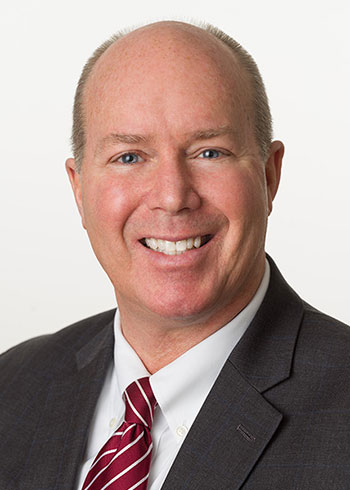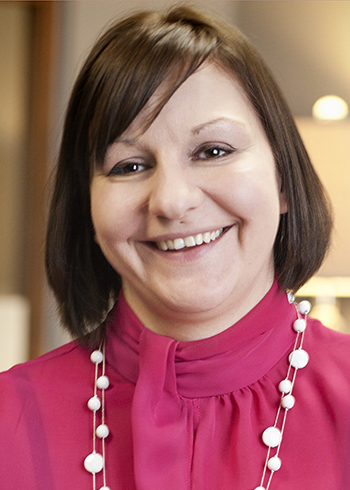Feb. 5, 2025 – The State Bar of Wisconsin’s 2025 president-elect race features two candidates with experience running solo practices.
Vote for State Bar Leaders in April: Get to Know the Candidates (It Could Be You*)
Stephen W. Sawyer and
Johanna R. Kirk have accepted nominations to run for 2025 State Bar of Wisconsin president-elect.
Both candidates are lawyers active in central and northern Wisconsin. Kirk (Hamline 2006) is with Kirk Law Office LLC in Thorp. Sawyer (Notre Dame 1996) is with Sawyer Law LLC in Stevens Point.
The winner of the 2025 election in April will serve a one-year term as president-elect, then serve a subsequent one-year term as president starting July 1, 2026.
In addition to a president-elect, State Bar members in April will elect other officers, including a treasurer, a judicial council representative, and 20 members of the State Bar’s 52-member Board of Governors. Those elected take office July 1, 2025, the first day of the new fiscal year.
In this article, learn about each candidate’s background and views on the important issues facing the legal profession and the State Bar. Coming in March: A candidate Q&A (send us your questions for our president-elect candidates).
Stephen W. Sawyer: Navy Pilot to Criminal Defense

Sawyer grew up in Milwaukee where his father was an ophthalmologist. He earned a Bachelor of Science degree in business administration at Colorado State University.
As a member of his school’s student council, Sawyer got a taste of advocacy and the law while defending a colleague in an impeachment proceeding, which he thought was challenging and fun, and for which he discovered some aptitude.
After college he successfully completed the Navy’s Aviation Officer Candidate School and served from 1986 to 1993 as a naval officer and helicopter pilot.
His experiences with the HC-2 Squadron included flying various utility missions including VIP transport primarily for the Commander in Chief for the Atlantic Fleet. His deployments included six months in the Persian Gulf and six months in the Mediterranean Sea.
He also volunteered as his squadron’s nonlawyer legal officer – a position that most of his colleagues tried to avoid at all costs, but in which he thrived. “Doing that solidified it for me – the idea of being a lawyer,” he said.
While still in the Navy, he earned his master’s degree in business management to help his chances of getting into a top-notch law school.
Clerking in his 2L summer with Foley & Lardner in Milwaukee, Sawyer started his career with the firm in corporate banking and finance after graduating from Notre Dame in 1996. He continued working in the area of financial institutions with various firms, including ultimately at Quarles & Brady for the first few years of his legal career.
When the attacks in New York City and Washington, D.C., happened on Sept. 11, 2001, it hit close to home: 10 months prior Sawyer had closed a large loan transaction for a client across the street from the World Trade Center, and he had regularly landed his helicopter near the door where the plane crashed into the Pentagon.
“I took a step back, and thought: life is fleeting,” Sawyer said. “When I was in the Navy, I had the great fortune to save 30 lives – through rescues at sea or medical evacuations. You don’t get a sense of satisfaction better than saving somebody’s life.”
He missed that as a finance attorney. “It takes great skill and focus to be a finance attorney – but I didn’t feel like I was having a personal impact on people’s lives.”
He became a Milwaukee County assistant district attorney in 2002 and worked on general misdemeanor cases, litigating many via trial.
In 2003 he went solo as a criminal defense attorney – a practice he continues today out of his office in Stevens Point. He’s had cases in 33 counties over the years and now takes many difficult and complicated felony cases. “Every day is different. Each case is different,” Sawyer said.
Sawyer is “absolutely honored and humbled” to be a candidate for State Bar president-elect. Over the past years, he has served as District 7 representative on the Board of Governors and on various State Bar committees. He’s picked up leadership skills along the way – not just with the State Bar, but also as a naval officer and with his background in business. “I think I’ve got the ability to move the practice of law in the direction it needs to go,” he said.
That work includes changing public perceptions of the court system and the rule of law. “These concepts and ideals are what keep society from descending into chaos,” Sawyer said. “When we look at issues like the lack of public funding for indigent civil defense – this clearly demonstrates that legislators and taxpayers don’t fully understand or value the role our court system plays in society. This is something the State Bar can influence.”
That influence includes public education initiatives that include civics lessons on the role that the justice system plays in resolving conflict. “If our taxpayers and lawmakers don’t understand, value, or respect the legal system then society suffers, and people think they must take matters into their own hands.”
Another related challenge: the State Bar programs to increase the number of attorneys in underserved areas. “State Bar initiatives like the
Rural Clerkship Program and the
Law Foundation’s Bullon grants are a very good first step. We should lobby our legislature to also be involved, to help lawyers move into and set up practices in legal deserts.” he said.
“I have a particular set of skills and life experiences that I think I can bring to bear on meeting these challenges,” Sawyer said.
Johanna R. Kirk: 4-H Kid to Solo Attorney

Johanna Kirk learned a lot about running a business growing up in Lublin, a small town in western Taylor County. “I was a 4-H kid,” Kirk said, raising lambs every year to sell at the county fair.
The Market Animal Project required that the children participating in the program track expenses required to raise the animal: the initial investment, renting the pen, purchasing hay, veterinary care, and then checking if they made a profit. “It’s really good training for kids,” she said. And for running your own law firm. “I was destined to be a solo attorney because of this project,” she said.
Then, there was that day in high school that changed her life. Taylor County District Attorney Shawn Mutter (now Shawn M. Paul) gave a presentation at a career day. It was inspiring to Kirk, and showed her that women could be lawyers, not just teachers or farmers’ wives. “That was the day I decided to become a lawyer.”
After graduating from U.W.-Superior in 2001, Kirk took a year off before law school to work at a one-attorney insurance defense firm in Mankato, Minnesota. “It opened my eyes to this very unique area of law and gave me exposure to operating a solo firm – running the business, practicing law, and being engaged in your community as a volunteer and a leader – all those different things a solo has to do,” she said.
At Hamline (now Mitchell Hamline) in Saint Paul, Minnesota, she attended the school’s weekend program while working full-time tending bar in Superior. “The owner was fantastic. He said ‘I’ll pay you to do your homework while keeping the bar open until 2 a.m.,’” she said.
In January 2006, she earned her J.D., and by April 2006 had passed Wisconsin’s bar exam. For the next seven years, she worked at a firm in Superior, starting as associate and ending up as partner. Her practice included school law, insurance defense litigation, and business law. “That’s where I got into elder law and estate planning, too,” Kirk said. “I had great mentors at that firm.”
In 2013, Kirk opened her solo firm. She concentrated almost entirely on estate planning, probate, and real estate transactions, and added guardian ad litem work for CHIPS cases.
In 2024, Kirk moved her practice back to her childhood home. She now lives in Lublin with an office in Thorp, where she is the only employee.
“It feels great to be back home,” Kirk said. “I’m reminded of all the parts of rural life: You get to slow down, be present, and focus. And that’s both great and challenging.”
Moving to Thorp wasn’t starting over. “The community here has been absolutely great,” she said. “It turns out that those years I spent as a teen helping with the fire department and church and the Dairy Days food stands – they definitely paid off. People remember me and they are bringing their work to me.”
The most rewarding part of a solo practice are the relationships you build with your clients, Kirk said. “The ability to create lasting and enduring relationships with my clients is the best reward.”
That ethic she learned as a youth – of volunteering for her community – translates to her career as well. The State Bar president needs to be someone “dedicated to working for the members, for the benefit of the bar, who is willing to put in the time,” Kirk said. “I started volunteering with the State Bar three months into my practice – joining Solo, Small Firm & General Practice Section Board in 2006.” And it is the right time for her to run for president-elect. “I’m at a point in my career where it fits.”
The biggest challenges for lawyers and judges? “As I talk to them, I hear they are feeling overworked and overwhelmed by the shortage of lawyers,” Kirk said. “There’s more work than we have time for, and attorneys are feeling pressured to do the extra work.”
The new State Bar programs such as the
Rural Clerkship Program and the
Law Foundation’s new Bullon grants are encouraging, and a good start, she said. Kirk also wonders how members can find ways to work with existing infrastructure – such as the U.W. Extension which has a presence in each county in the state – to connect attorneys with those who need legal help. Extensions, she said, have programs for farming, rural transportation, managing income and finance, and programs for the aging. For example, “can we connect attorneys with ADRCs to help with elder services?”
“We do need to work on the pipeline, but we can also use existing technology infrastructure to get clients and attorneys together,” Kirk said. “I have clients I’ve never met in person. It’s doable.”
